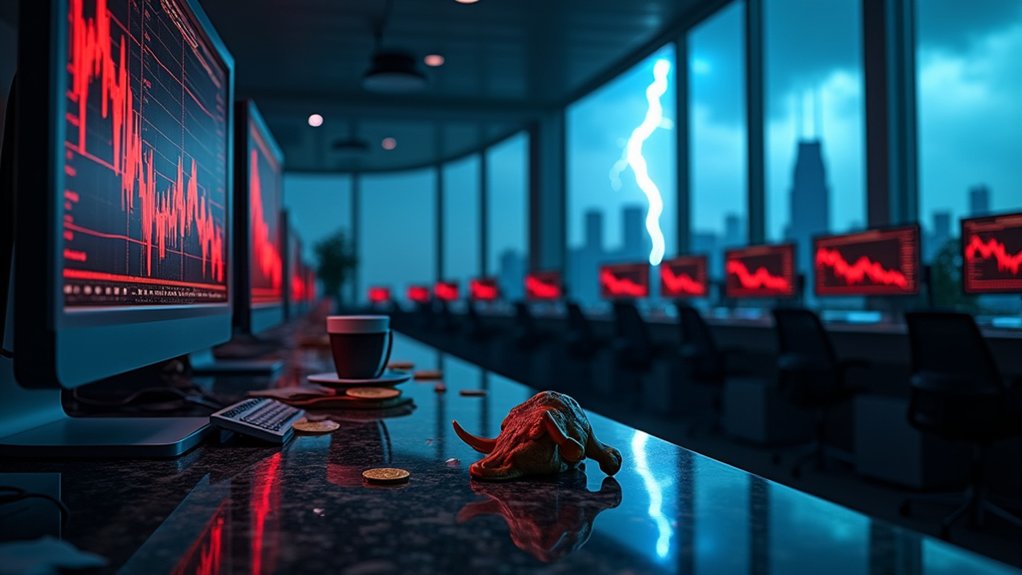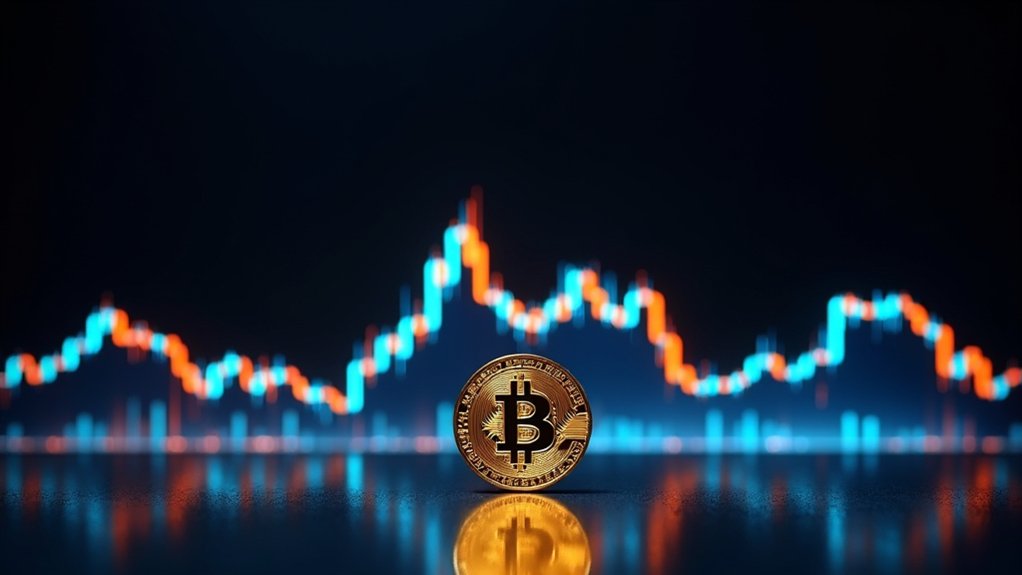While economists scramble for explanations, the real causes behind the recent market bloodbath are hiding in plain sight. Wall Street has hemorrhaged over $1.75 trillion in value, with crypto markets tanking alongside it. Not exactly a banner month for investors.
The culprit? A perfect storm of economic policy uncertainty. Trump’s erratic tariff wars hurt America more than their targets. Massive administrative layoffs created instability. Even the Ukraine aid suspension following the Zelenskiy confrontation sent ripples through markets. Investors hate unpredictability. They’re voting with their wallets.
Markets are speaking loud and clear: political drama creates economic chaos. Investors crave stability, not surprises.
Market volatility has reached nerve-wracking levels. The S&P 500 hit six-month lows. Nasdaq had its worst session since 2022, dropping over 4%. Seven major tech companies, all valued over $2 trillion, are struggling to justify their astronomical valuations. Tesla shares? Down over half since December. Ouch.
The much-hyped U.S. Crypto Strategic Reserve turned out to be a massive disappointment. Billions exited the crypto economy as investors watched their digital dreams evaporate. No clear regulations, no market stability. Simple as that.
Global markets are shifting allegiances. Citigroup and HSBC downgraded U.S. stocks from buy to neutral while upgrading China and Europe to buy. The German Dax and Ibex 35 are up more than 10% in 2025. Meanwhile, U.S. markets have been in “recalculation mode” for three weeks. Translation: freefall.
The tech sector faces its own reckoning. The AI-fueled bubble may finally be bursting. Tesla’s not alone in its troubles, though Apple somehow maintains its $3+ trillion valuation. For now.
Regulatory confusion compounds the problems. Who’s watching the crypto industry? Nobody knows. Accounting standards change like the weather. Banks and crypto companies are dangerously interconnected. The low exchange reserves of about 2.35 million bitcoins may trigger a supply shock if demand suddenly increases. Despite the massive sell-off, overall sentiment about cryptocurrencies remains surprisingly neutral according to market analysts.
The 62% of U.S. adults who own stocks, many through pension funds, are watching nervously. Only defensive sectors like consumer goods, pharma, and REITs have been spared. Trump’s troubling comments about a transitional economy and potential recession have only deepened investor anxiety. Everyone else? They’re feeling the pain. No sugar-coating it.





